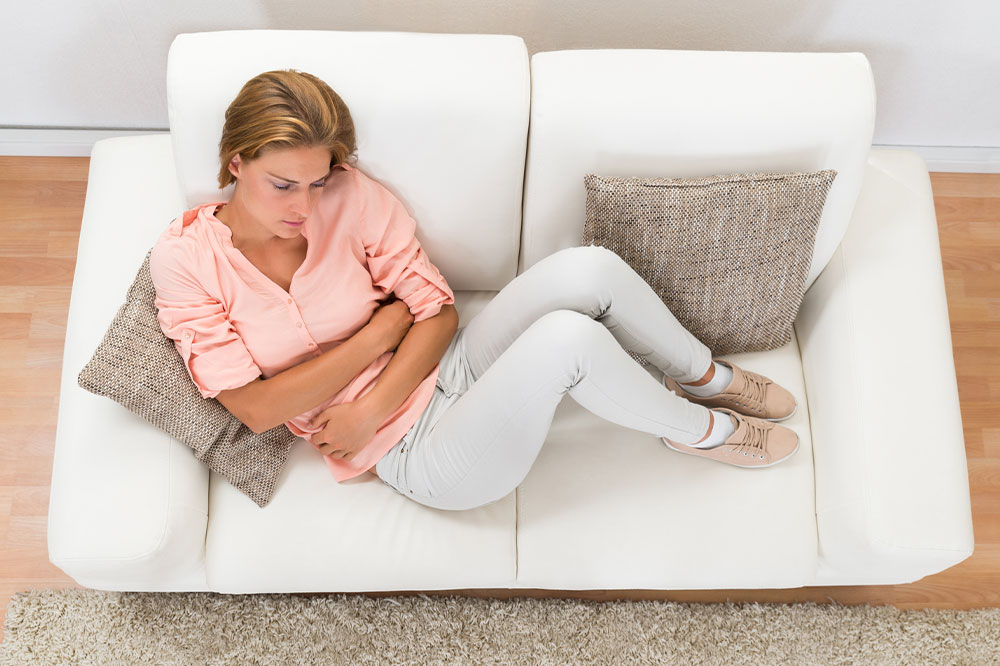Almost every individual has experienced constipation from time to time. It is the most common gastrointestinal complaint. Constipation is simply regarded as uncomfortable or infrequent bowel movements. Most individuals will feel shy or awkward about seeking medical help for these problems. In such circumstances, following certain remedies will prompt quick relief from constipation. Keep reading to know more about effective remedies or ways to relieve constipation at home.
Constipation – An overview
Constipation is a chronic indigestion issue characterized by infrequent bowel movements, passing dry, hard stools, or difficulty passing stools. It may leave the affected person feeling uncomfortable and bloated. A lack of fiber content in one’s meal plan, inactivity, certain prescription treatment, and underlying medical conditions are some factors that induce constipation.
The food one consumes during normal digestion moves through the digestive tract. It breaks down in the stomach before reaching the intestines to absorb nutrients and remove waste. When the broken food particles move to the intestine, the colon absorbs water, making it easy to excrete feces.
The contractions in muscles push the feces to the rectum. Constipation occurs when the contractions in the muscles are too weak or slow. As a result, the colon absorbs excess water, resulting in stiff and dry stools that are difficult to pass. Fortunately, several ways exist to relieve constipation and prevent recurring episodes.
Best ways to relieve constipation
Learning the root cause of constipation is the best approach to curing the condition and finding instant relief. Here we have compiled a list of simple yet effective ways to relieve constipation and improve the gut’s overall health from the comfort of one’s home.
- Consume plenty of water
Consuming more water is the primary and important approach to relieving constipation. When the body is dehydrated, it makes the stool dry and hard to pass. Drinking enough water softens the stool, allowing it to pass easily.It is essential to consume quite a few glasses of water daily. Nonetheless, the adequate amount of water for one varies depending on the age, weight, activity, and gender of an individual.
- Drink herbal tea
Herbal teas serve as one of the natural ways to relieve constipation. Drinks like ginger tea stimulate the action of the digestive system and reduce constipation. For instance, ginger tea has anti-inflammatory properties that soothe the lining of the intestine walls and relieve constipation.Similarly, drinking peppermint tea relaxes the intestinal muscles to ease the passing of stools. On the other hand, fennel tea relieves symptoms of constipation, such as bloating and gas.
- Try warm coffee
Research shows that drinking hot caffeinated drinks effectively stimulates bowel movement. It triggers muscle contractions in the colon muscles and pushes out the stool, relieving constipation. However, drink this warm beverage in moderation, as excess consumption can result in dehydration.
- Take a swig of lemon water
The citric acid in lemon water is an effective stimulant for the movements of the digestive system. It helps remove the toxic elements from one’s body, significantly relieving constipation. Adding fresh lemon juice to a glass of water and drinking it every morning can help improve long-term digestion problems.
- Take one tablespoon of castor oil
Taking one tablespoon of castor oil is an excellent home remedy for constipation that has been practiced for years. The primary benefit of using castor oil is its laxative properties. One can take one or two teaspoons of castor oil on an empty stomach and see the results within a few hours. It is because the castor oil effectively stimulates the large and small intestines to flush out stool.
- Ingest the sesame seeds
Having sesame seeds is a great way to relieve constipation at home. This is because the oil composition of the seeds helps moisturize the intestinal walls. It helps smoothen dry stools and provides a complete cure for constipation. One can add the seeds to their cereals or salads or have them as a dip.
- Increase the intake of fiber
Fiber plays a vital role in healthy digestion. Hence, those with constipation should eat fiber-rich foods like nuts, green leafy vegetables, cucumbers, and apples.Soluble fiber softens stool and makes it easier to pass. Insoluble fiber also adds bulk to one’s stool. One must increase their fiber intake to minimize any potential negative effects.
- Be active
Lack of physical activity is another primary cause of constipation. Therefore, one must walk for 20 minutes after every meal. In addition, one should also work out to facilitate the digestion process. It is essential to exercise for at least 30 minutes per day.
Here are some recommended physical activities that aid in improving one’s bowel movements:
- Going walking
A brisk walk for a half-hour every morning stimulates the digestive system and gets the stool moving through the intestines. - Doing yoga
Certain yoga poses, like wind-relieving or cat-cow poses, relieve constipation. - Doing squats
Doing squats induces and promotes regular bowel movements, preventing digestion problems. - Getting an abdominal massage
Massaging the abdominal region helps relieve constipation and related symptoms. One can lie on their back and massage the area clockwise for at least 10 minutes. Repeat the process twice every day to get better results. One can also get a massage done by a professional.
Constipation, a painful and uncomfortable problem, can easily affect one’s daily routine and quality of life. Nonetheless, it is typically self-treatable with healthy home remedies and lifestyle changes. The natural ways to relieve constipation mentioned above can manage the condition and help get the digestive system back on track.
Visit a gastroenterologist if the condition doesn’t improve. Getting professional help can ensure that timely treatment is administered.



